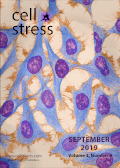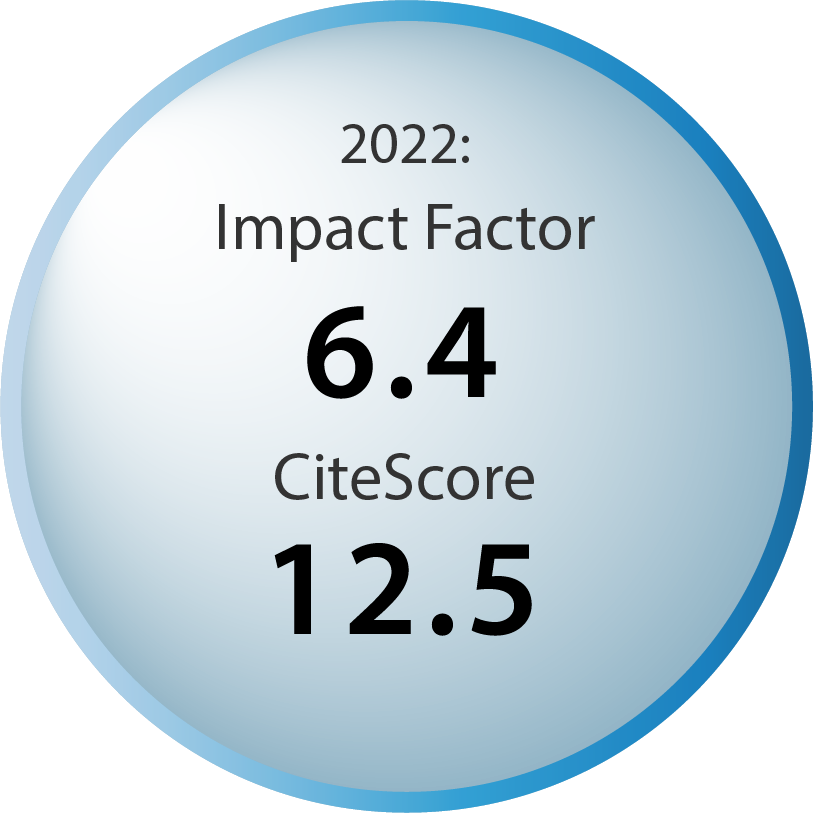Table of contents
Volume 3, Issue 9, pp. 284 - 309, September 2019
Cover: This month in
Cell Stress: Myelopoiesis and immunosurveillance in cancer cell stress. Fluorescence image of HeLa cells stained with the actin binding toxin phalloidin (orange), microtubules (blue) and cell nuclei (violet). Public domain image by National Institutes of Health (NIH) - National Institutes of Health (NIH), Public Domain, https://commons.wikimedia.org/w/index.php?curid=29540602. Modified by
Cell Stress. The cover is published under the
CC BY 4.0 license.
Enlarge issue cover
Immunosurveillance of cancer cell stress
Seila Lorenzo-Herrero, Christian Sordo-Bahamonde, Segundo González and Alejandro López-Soto
Reviews |
page 295-309 | 10.15698/cst2019.09.198 | Full text | PDF |
Abstract
Cancer development is tightly controlled by effector immune responses that recognize and eliminate malignantly transformed cells. Nonetheless, certain immune subsets, such as tumor-associated macrophages, have been described to promote tumor growth, unraveling a double-edge role of the immune system in cancer. Cell stress can modulate the crosstalk between immune cells and tumor cells, reshaping tumor immunogenicity and/or immune function and phenotype. Infiltrating immune cells are exposed to the challenging conditions typically present in the tumor microenvironment. In return, the myriad of signaling pathways activated in response to stress conditions may tip the balance toward stimulation of antitumor responses or immune-mediated tumor progression. Here, we explore how distinct situations of cellular stress influence innate and adaptive immunity and the consequent impact on cancer establishment and progression.
Myelopoiesis, metabolism and therapy: a crucial crossroads in cancer progression
Antonio Sica, Valentina Guarneri and Alessandra Gennari
Reviews |
page 284-294 | 10.15698/cst2019.09.197 | Full text | PDF |
Abstract
Cancers promote immunological stresses that induce alterations of the myelopoietic output, defined as emergency myelopoiesis, which lead to the generation of different myeloid populations endowed with tumor-promoting activities. New evidence indicates that acquisition of this tumor-promoting phenotype by myeloid cells is the result of a multistep process, encompassing initial events originating into the bone marrow and later steps operating in the tumor microenvironment. The careful characterization of these sequential mechanisms is likely to offer new potential therapeutic opportunities. Here, we describe relevant mechanisms of myeloid cells reprogramming that instate immune dysfunctions and limit effective responses to anticancer therapy and discuss the influence that metabolic events, as well as chemotherapy, elicit on such events.



